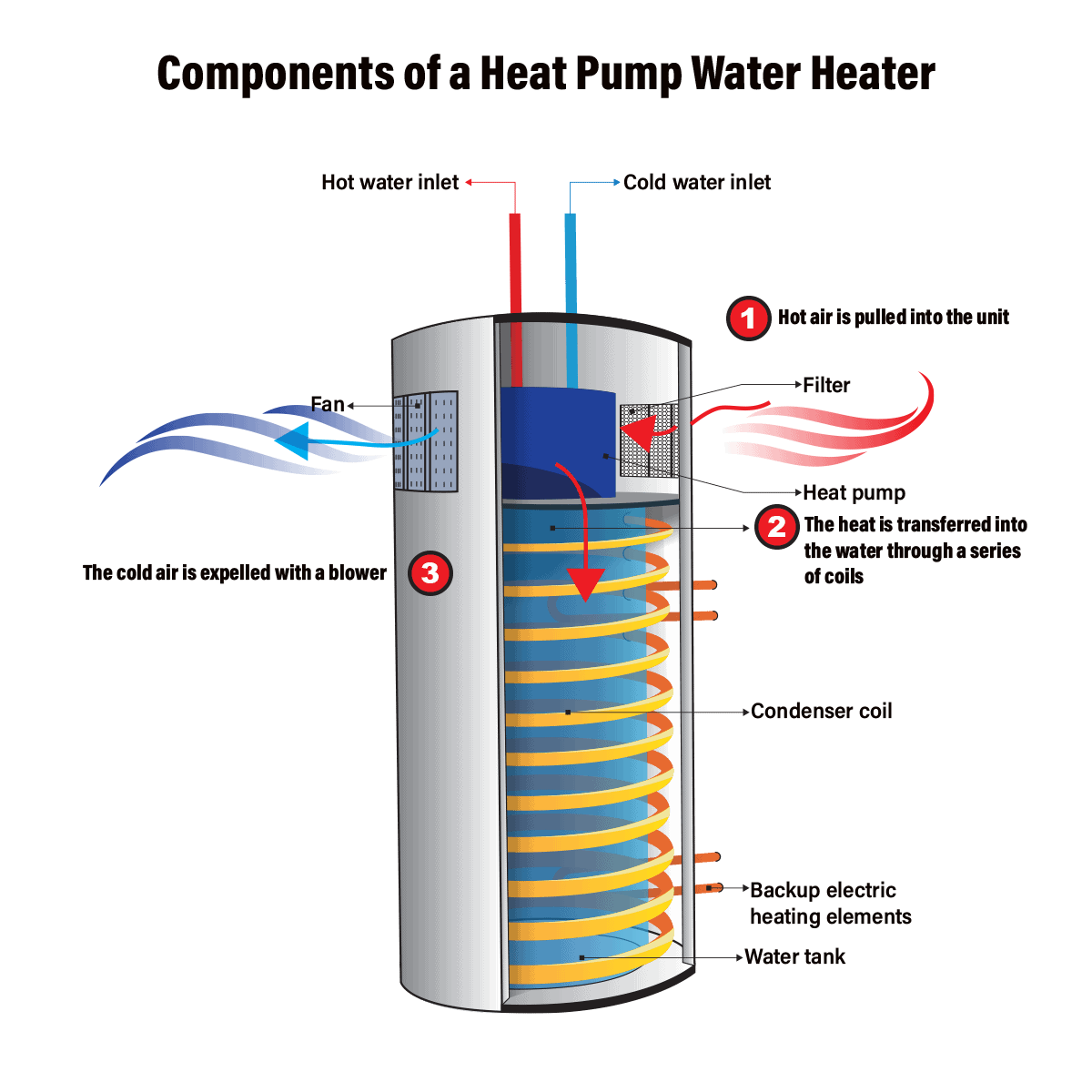
Why Lifespan Matters
A water heater is one of the most important appliances in your home, but most homeowners don’t think about it until the shower turns cold. Replacing a unit too soon can waste money, but waiting too long risks leaks, property damage, and costly emergencies. Knowing the average lifespan of your water heater—and the warning signs when it’s nearing the end—is the key to protecting both your comfort and your wallet.
For Florida homeowners, the climate adds unique challenges. Heat, humidity, and hard water can shorten the lifespan of a unit. That makes it even more important to understand how long your water heater should last and when it’s time to plan for replacement.
Average Lifespan by Water Heater Type
Not all water heaters are built the same. The kind you have in your home will determine how long it should reasonably last.
- Traditional Tank Water Heater:
Typically lasts 8–12 years, depending on maintenance. Tanks are vulnerable to corrosion, especially in humid climates like Florida. - Tankless Water Heater:
Usually lasts 15–20 years with proper care. These systems heat water on demand, so they undergo less wear and tear. - Hybrid Models:
Combining tank and tankless elements, hybrids average 10–15 years.
Keep in mind: these numbers are averages. Some systems fail sooner, while others—when maintained—last years beyond expectations.
Factors That Affect Lifespan in Florida
Florida homeowners face unique conditions that can shorten or extend water heater life:
- Hard Water: Minerals build up in the tank, leading to sediment and reduced efficiency.
- Humidity & Heat: Corrosion accelerates in coastal and humid climates.
- Maintenance Habits: Flushing the tank annually and replacing anode rods can add years of life.
- Usage Levels: A large family places more strain on the system than a single occupant.
- Installation Quality: Proper venting, correct sizing, and secure fittings reduce long-term wear.
Ignoring these factors can shave years off a unit’s expected lifespan.
Warning Signs It’s Time for Replacement
Even if your water heater is technically still running, it may be near the end of its useful life. Watch for these red flags:
- Rusty or Discolored Water – A clear sign of internal tank corrosion.
- Noisy Operation – Popping or rumbling means sediment buildup.
- Inconsistent Hot Water – Temperature swings often signal failing components.
- Leaks Around the Base – Small drips can quickly escalate to full tank ruptures.
- Age of the Unit – If it’s over 10 years old, replacement should be on your radar.
Repair vs. Replace: Making the Right Call
Sometimes, a failing part can be repaired. Other times, replacement is the smarter long-term move.
- Good Candidates for Repair: Newer systems (under 8 years), thermostat issues, heating element replacement.
- Best to Replace: Older tanks with corrosion, frequent repairs, or major leaks.
At Discount Water Heater, our technicians always recommend what’s best for your situation—not just the quick sale.
How to Extend the Life of Your Water Heater
If your system isn’t failing yet, a little maintenance can buy you more time:
- Flush the tank once a year to prevent sediment buildup.
- Replace the anode rod every 3–5 years to prevent rust.
- Insulate pipes and tanks to reduce strain in high-demand seasons.
- Schedule regular professional inspections to catch small issues before they escalate.
Conclusion
The lifespan of your water heater depends on its type, your maintenance habits, and Florida’s challenging environment. On average, expect 8–12 years for tank models and 15–20 years for tankless—but the smartest move is to keep an eye on warning signs before disaster strikes.
👉 If your system is over a decade old or showing signs of trouble, call Discount Water Heater today. We provide fast, affordable service across the Treasure Coast—backed by our lowest-price guarantee.
